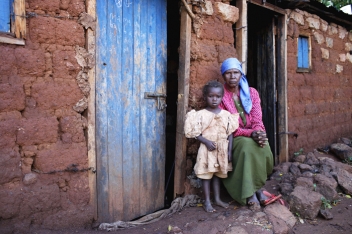 This week, the UN’s Commission for Social Development (CSD) meets in New York to discuss poverty eradication strategies. The CSD meets every February and is a technical body of the UN that develops policy responses to social development. Its mandate also includes monitoring the implementation of the Madrid Intentional Plan of Action on Ageing (MIPAA).
This week, the UN’s Commission for Social Development (CSD) meets in New York to discuss poverty eradication strategies. The CSD meets every February and is a technical body of the UN that develops policy responses to social development. Its mandate also includes monitoring the implementation of the Madrid Intentional Plan of Action on Ageing (MIPAA).
This year the CSD meets at a time when ageing and older people’s rights are higher on the international agenda than ever before.
2012 is the ten-year review of MIPAA. It is the European Year of Active Ageing and Solidarity between Generations. The Organization of American States and the African Union are both drafting regional instruments to protect older people’s rights. And it is a critical year for the UN Open-ended Working Group on Ageing, set up to examine gaps in international protection of older people’s rights.
Demographic ageing ignored
But despite this unprecedented attention, the initial draft of the policy recommendation document from this year’s CSD fails to take demographic ageing into account and does not recognise the link between poverty and human rights.
Ten years of MIPAA has, therefore, failed to push the very part of the UN that monitors its implementation to consider ageing a key development policy agenda.
Which begs the question, if not now, when?
As the UN Secretary General’s report to this year’s CSD shows, preliminary findings of the ten-year review of MIPAA point to inconsistent and patchy implementation of its recommendations. Disappointingly few governments have adopted the measures necessary to ensure that older people enjoy their rights.
Age discrimination not addressed
Ten years of MIPAA has also failed to result in a paradigm shift from the perception of older people as vulnerable recipients of welfare to that of older people as equal citizens and rights holders. Ageism and age discrimination continue to be tolerated worldwide and at every level of society.
The international human rights framework has also failed to adequately address this discrimination, as the work of the UN Open-ended Working Group on Ageing has highlighted,
Specific reference to older people’s rights is rare, age discrimination is only explicitly prohibited in one international human rights treaty (on migrant workers) and there is little understanding of how general human rights standards apply specifically to ageing.
As a result, few governments pay attention to older people’s rights when they report on their obligations under human rights treaties. Data is not disaggregated by age and discrimination against older people remains hidden.
Stronger human rights frameworks needed
It is increasingly clear, therefore, that the human rights framework needs strengthening and that MIPAA alone cannot be relied on to fill these present gaps in the protection of older people’s rights.
HelpAge strongly believes that a new convention on the rights of older people would fill these gaps.
Experience has shown that human rights instruments are powerful tools in protecting human rights. Conventions on children’s rights, women’s rights and more recently the rights of people with disabilities have helped change the way we view and treat some of the most marginalised and discriminated against.
International human rights treaties for these groups have been a means for developing human rights protection, creating institutions in which a state can participate and be accountable to, and providing an authoritative basis for legal reasoning about any relevant dispute.
A convention on the rights of older people
A universal, comprehensive human rights convention prohibiting age discrimination and providing clarity on how human rights standards specifically apply to older people would provide a framework for rights-based legislative, policy, budgetary and programming decision making.
It would establish the necessary accountability and enforceability mechanisms, through which older people could hold their governments to account, something that MIPAA does not provide.
Creating a special rapporteur on the rights of older people would be an important step towards the adoption of such a convention as it would deepen understanding about the challenges and responses required to fully protect older people’s rights.
Nothing less will do if we are to live in a society fit for all ages.
- Read more about our work on older people’s rights
- Sign our Age Demands Action petition supporting a convention on the rights of older people
